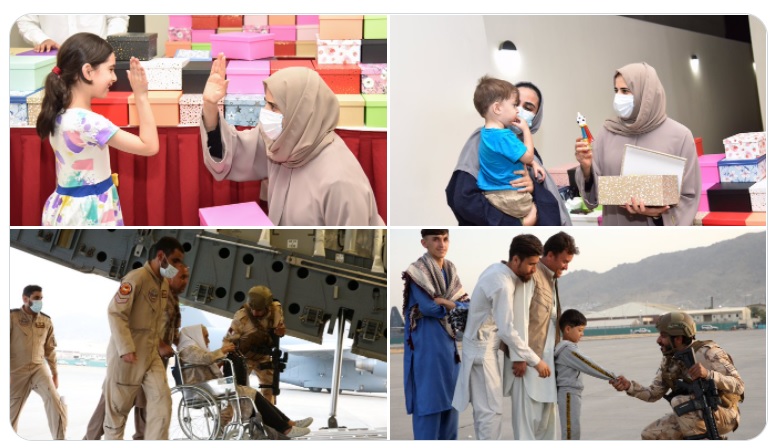Firstly, Ramadan Kareem! I know I’m late (it’s the workload), but I wanted to share a guide on how to deal with the media in Ramadan. For those who don’t know, Ramadan is the holiest month of the calendar for Muslims globally. This annual observance of spirituality is regarded as one of the five pillars of Islam, and Muslims fast from dawn till dusk. This also means a shift in work schedules for many, with those fasting working shorter hours.
So, what does it mean for PR in Muslim countries or regions such as the Gulf? Here’s my guide to media relations in Ramadan below.
A season for greetings
It’s usual to receive two sets of greetings during Ramadan. The first is at the beginning of Ramadan, where people wish one another a happy or beautiful Ramadan (we usually say Ramadan Kareem). The second message is shared at the end of Ramadan, for Eid, the festival which marks the end of the month.
The Middle East is a society built on relationships, and it’s no surprise that many PR professionals send out such greetings to media to build their relationship with those in the media. A decade back, I used to receive greetings the old-fashioned way, in paper format. Today, I’m much more likely to receive an electronic version, either shared by email or via instant messenger.
Here’s two sample Ramadan message designs for you.

The start of Ramadan is marked by a crescent moon, and this image is commonly used for Ramadan greetings

Besides the crescent moon, there’s many different images associated with Ramadan. Another common image is the mosque, the place of worship for Muslims.
The Iftar or Suhoor Gathering
It’s also common to invite media to an Iftar, the meal which breaks the fast at sunset. The Iftar and Suhoor, which follows the Iftar later in the evening, are occasions to engage with others. PR agencies and clients will often invite a group of media to dine with them.
What’s great about a media Iftar is the opportunity to meet with and talk to journalists in a relaxed atmosphere, without the need to discuss work. The Iftar and suhoor gatherings are a great opportunity to build relations with key media contacts for an hour or two.
There’s other occasions during Ramadan, which are unique to certain parts of the region. In Bahrain, Kuwait and Qatar, many firms celebrate with their employees or media during a Ghabga, which is a gathering between Iftar and Suhoor. Whatever they’re called in their respective regions, make sure you know these events and how you can use them for media relations.
The Media Working Hours
Many companies reduce their working hours for those fasting (some reduce the hours for all employees). I asked three media people, one in a newspaper, the second from TV, and a third from a magazine, about how Ramadan changes their operations. Their responses are below:
- The Newspaper Editor: Working hours do change, and they don’t. My organization reduces hours like everyone else, but reporters must still find stories to fill our pages. The paper still has to come out. We try to reduce the workload but we still have to provide coverage. We’re less demanding on how many stories they file, but since there are fewer press conferences and events, reporters really have to go the extra mile to find people to talk to. Page counts come down slightly on slower news days, but that usually just means fewer international stories for the editors to source. But deadlines don’t change, reporters must still file stories, and the presses still need to be fed. And in the unlikely event that something big breaks… it doesn’t matter if Iftar is in 15 minutes. We want that story. Now, before competition gets it.
- The TV Editor: There aren’t many operational changes. Working hours are reduced for those in admin and management positions. For the editorial and operations teams, the hours are the same as outside of Ramadan. The biggest change is that we shift shows around, so the morning show is moved even earlier. Other program timings may change too.
- The Magazine Editor: There’s really no change to how we work in Ramadan.
Ramadan Themes
The other major change during Ramadan is a shift in coverage. Top of the list are issues related to Ramadan, such as charity, spirituality and other related issues. A simple example of a charity initiative is shown below.. The Dubai-based Virgin Megastore launched an initiative called Pay it Forward, in collaboration with delivery service Fetchr, to support the Dubai Foundation for Women & Children, which provides protection and support services to victims of domestic violence, child abuse and human trafficking.

Unsurprising, there’s less discussion about certain subjects (think alcohol, conspicuous consumption on luxury goods, and other issues which contradict the spirituality of the month). Many have come up a cropper on this issue, such as the below which was put out by a hotel in Dubai.

Atelier was criticized on social media for its gold-themed Iftar (and for the advert also mentioning alcohol)
Make the most of the holy month
Ramadan is a great time for engaging with media, and building relations. I hope that you’ll enjoy this time of year as much as I do, both for the spirituality of the occasion as well as the opportunity to see media friends.













